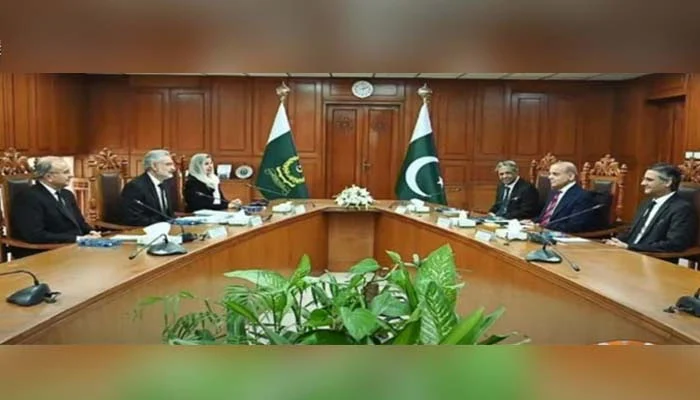Prime Minister Shehbaz Sharif recently convened a crucial meeting with Chief Justice of Pakistan (CJP) Qazi Faez Isa to address concerning allegations raised by judges of the Islamabad High Court (IHC). These allegations accused the nation’s intelligence agencies of unwarranted involvement in judicial affairs, as reported by Geo News on Thursday.
The Meeting Dynamics
Accompanied by the attorney general and the law minister, the prime minister visited the Supreme Court for this pivotal discussion. Notably, Justice Mansoor Ali Shah was also present during the session, adding weight to the discourse.
Context of the Allegations
The backdrop of this meeting was the emergence of a letter penned by six judges from the IHC. Justices Mohsin Akhtar Kiyani, Tariq Mehmood Jahangiri, Babar Sattar, Sardar Ejaz Ishaq Khan, Arbab Muhammad Tahir, and Saman Rafat Imtiaz collectively approached the Supreme Judicial Council (SJC). Their aim was to convene a judicial convention, highlighting concerns over alleged executive interference, including actions by intelligence operatives, within the realm of judicial matters.
Judicial Concerns and the Need for Clarity
In their letter, the judges lamented the absence of clear directives within the SJC’s code of conduct for judges regarding how to address incidents undermining judicial independence. This lack of guidance on reporting instances of intimidation or interference remains a critical issue within the judiciary.
Apex Court’s Deliberation
Responding to the gravity of the situation, the apex court held a full-court meeting in the federal capital. Chaired by CJP Isa, the session aimed to deliberate on the judges’ letter and solicit guidance from the SJC. Central to this discussion was the duty of judges to report and respond to executive actions, including those by intelligence agencies, that impede the execution of official duties, bordering on intimidation.
Calls for Investigation
The significance of the judges’ letter reverberated across legal circles, prompting demands for a thorough investigation. Bar associations from Sindh, Lahore, Islamabad, and Khyber Pakhtunkhwa, alongside senior lawyers, echoed the need for a probe into the allegations. Additionally, a constitutional plea has been lodged in the apex court, advocating for an open-court investigation into the matter. Submitted by Mian Dawood Advocate, this petition urges the formation of an empowered commission to investigate the alleged premeditated actions outlined in the judges’ letter.
The unfolding events underscore the paramount importance of upholding judicial independence and integrity. Prime Minister Shehbaz Sharif’s engagement with Chief Justice Qazi Faez Isa reflects a concerted effort to address these allegations and ensure the sanctity of the judiciary in Pakistan. As the nation awaits further developments, the pursuit of transparency and accountability remains pivotal in safeguarding the principles of justice and the rule of law.


